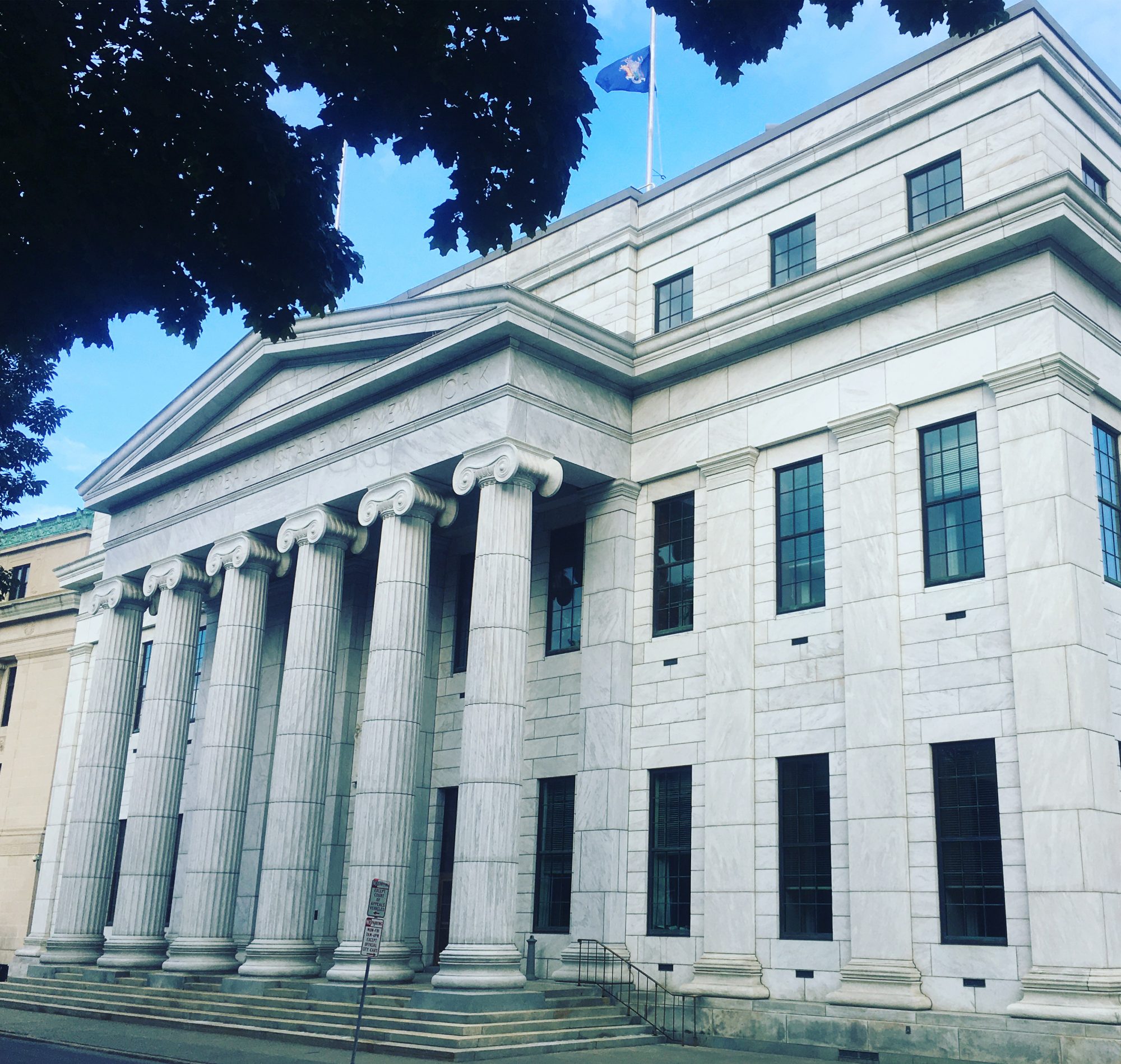After the December oral argument recess, the Court of Appeals resumes a full argument calendar in January back at Court of Appeals Hall (as always, live video of the Court’s arguments can be viewed here). Of the arguments on the docket for this afternoon (summaries of the arguments can be found here), one is of particular interest:
No. 2 Marin v Constitution Realty, LLC (Menkes v Golomb)
In this 2006 personal injury action, the issue before the Court has little, if anything, to do with the plaintiffs’ $8 million recovery from the defendant. Instead, this case is about which of the plaintiffs’ attorneys get an award of fees and in what percentages. In 2009, plaintiffs’ principal attorney, Sheryl Menkes, retained Jeffrey A. Manheimer to act as her co-counsel for the case, to take depositions, and to take the case to trial if necessary. Their agreement provided that for these services, Manheimer would be entitled to 20% of any attorney fee award. Only a few months later, however, Menkes and Manheimer amended their agreement to provide that Manheimer would only act as an advisor to Menkes in the case. Shortly thereafter, Menkes decided to terminate the agreement entirely.
After the plaintiffs were awarded summary judgment on liability in 2012, they mediated the issue of damages. Menkes retained David B. Golomb to handle the mediation, and any subsequent trial on damages if the case didn’t settle. The Menkes-Golomb agreement provided that if the case settled at the mediation “scheduled for May 20, 2013,” Golomb would be entitled to a 12% share of the attorneys’ fees. If the case did not settle at the mediation, Golomb agreed to handle the trial and would get 40% of the fees “whenever the case is resolved, whether by settlement, verdict after trial or appeal.” The case did not settle on the day of the scheduled mediation, but did shortly thereafter through the continued efforts of the mediator to work with the parties to reach an agreement.
Shortly after the settlement, a dispute arose amongst the attorneys about who gets what share of the $2.6 million attorneys’ fee. Supreme Court, reading the parties’ agreements, determined that Manheimer was entitled to 20% and Golomb 40% because the case did not settle on the one scheduled day of mediation, but was resolved thereafter.
The Appellate Division, First Department affirmed, but split 3-2 on the fees due to Golomb. The majority adopted the trial court’s construction of the Menkes-Golomb agreement, that the 12% fee was limited to a resolution on the one day of mediation, and held that no language in the agreement conditioned Golomb’s 40% fee on having to conduct any work in preparation for a trial on damages. The dissenters disagreed, noting that the language “presently scheduled for May 20, 2013” was a descriptive term for the mediation, not one intended to limit the 12% fee only to a resolution on that one day. Instead, they would have found, the mediator’s continued involvement and ultimate resolution of the case required the conclusion that Golomb’s fee should be 12% because the case settled as a result of the mediation.
On appeal, Menkes argues that the First Department majority’s interpretation unduly limited the meaning of the term “the mediation” in the Menkes-Golomb agreement and improperly accorded dispositive weight to the descriptive phrase that specified when the mediation was currently scheduled. It’s just not fair, Menkes claims, that Golomb would get 40% of the fees when he did not have to undertake any tasks of the trial counsel role for which the 40% fee was intended. In contrast, Golomb argues that his fee was determined on a single event: whether the case settled “at the mediation, presently scheduled for May 20, 2013.” Because it is not disputed that it did not settle at the mediation on May 20, 2013, but at some time thereafter, he claims the First Department properly affirmed the 40% fee award.
Plainly, this case is a cautionary tale for attorneys to ensure that your fee agreements are clear, unambiguous, and understood by all at the beginning of the relationship. Had that been done here, there would be no need for the Court of Appeals to determine whether the Marin mediation ended on May 20, 2013 as Golomb claims, or continued shortly thereafter as Menkes asserts, with $728,000 in fees hanging in the balance.
A copy of the Appellate Division, First Department’s order can be found here.
The trial court’s opinion can be found here.

One Reply to “”